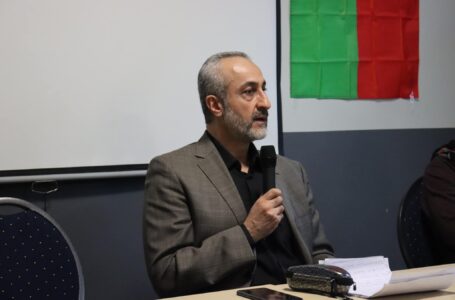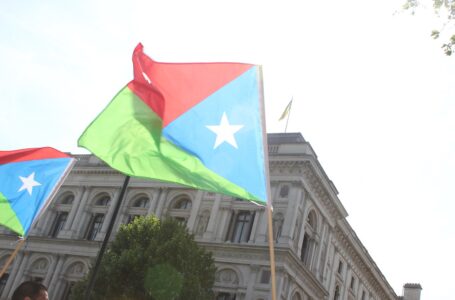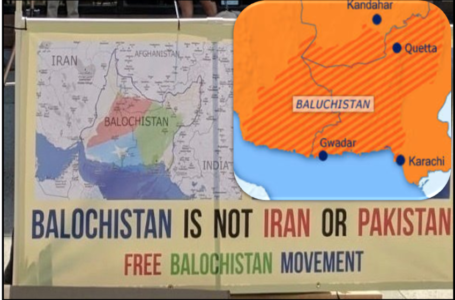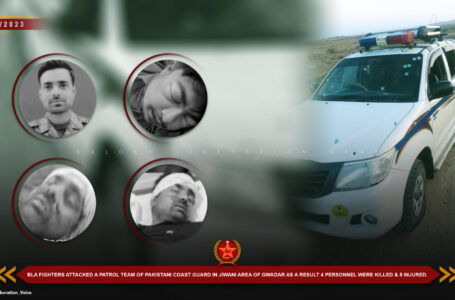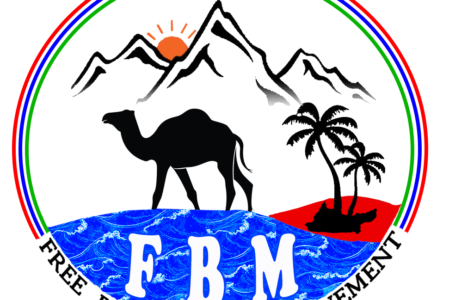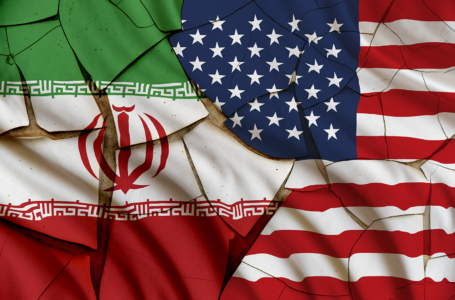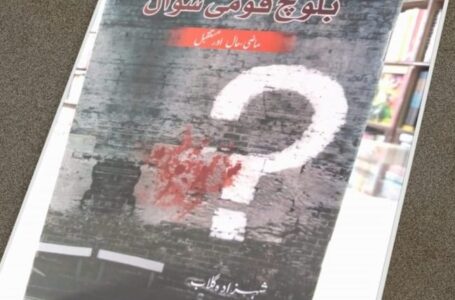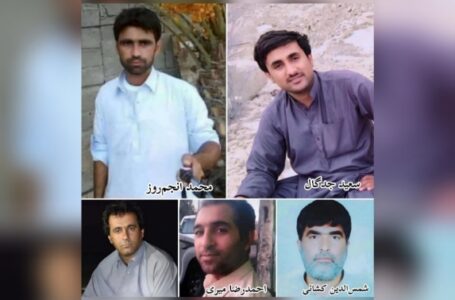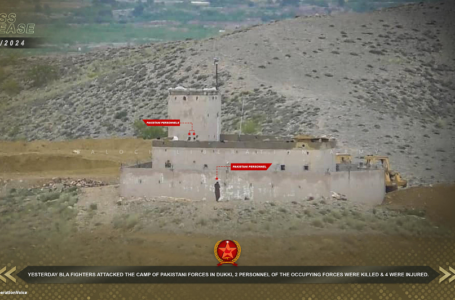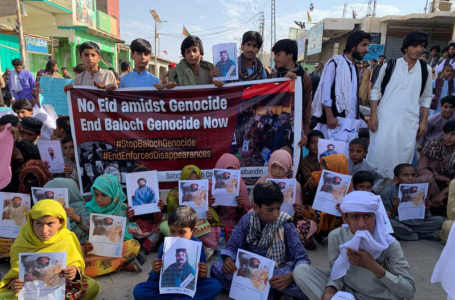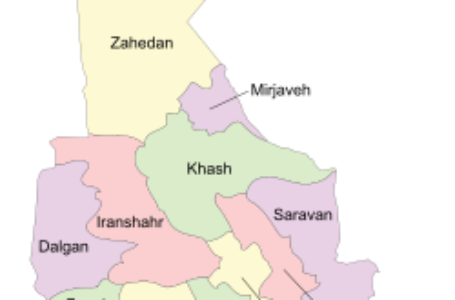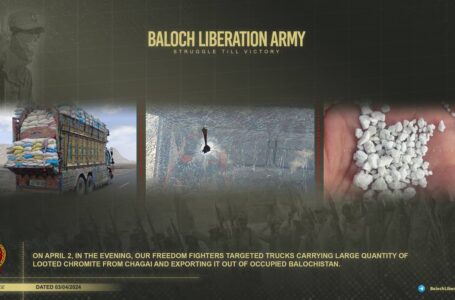Foreign countries should refrain from becoming Pakistan’s partner in Baloch Genocide: FBM
Why Balochistan should be an independent country?
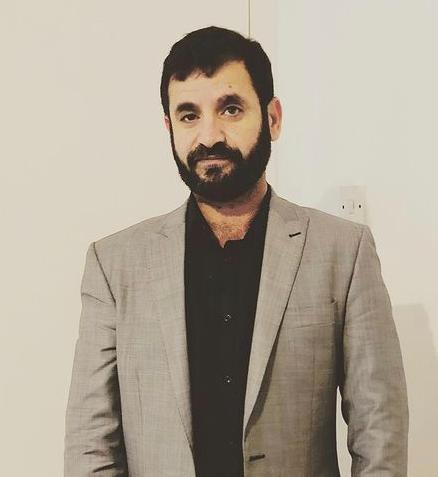
By Nobat Marri
Balochistan, has been plagued by a long-standing conflict between the oppressed Baloch and the Pakistani State. The Baloch nation, who have a distinct cultural and historical identity, have been fighting for their independence from Pakistan for many years. The Pakistani State has responded to this struggle with repression, violence and human rights abuses. This article argues that Balochistan should be an independent country, and it explains the reasons for this argument in greater detail.
The Baloch people have a unique cultural and historical identity that is not recognised by the Pakistani State. The Baloch people have their own language, traditions, and customs that are very different from those of the rest of Pakistan. However, the Pakistani State has consistently tried to suppress Baloch culture and impose its alien language and customs on the Baloch people. The Baloch people have also been marginalised and discriminated against by the Pakistani State for many years. This has resulted in a deep sense of alienation and resentment among the Baloch, who feel that their identity is being erased. The Baloch people have been demanding recognition of their unique identity, but their voices have fallen on deaf ears.
Balochistan is rich in natural resources, such as gas and minerals, but the benefits of these resources have not been shared with the Baloch people. Instead, these resources have been exploited by the Pakistani State and foreign corporations, while the Baloch people remain impoverished and neglected. Balochistan is severely underdeveloped, with a lack of basic infrastructure such as roads, schools, and hospitals. The Pakistani State has consistently failed to invest in the development of Balochistan, leading to a lack of economic opportunities and widespread poverty.
The Pakistani State has also engaged in human rights abuses against the Baloch people since it occupied Balochistan. The Pakistani military has launched several offensives in Balochistan over the years, resulting in the deaths of thousands of Baloch civilians. The military has also engaged in enforced disappearances, torture, and extrajudicial killings of Baloch activists and intellectuals. These human rights abuses have been well-documented by international organisations such as Amnesty International and Human Rights Watch.
The Pakistani State has consistently refused to engage in meaningful dialogue with Baloch leaders and activists and has responded to the Baloch people’s demand for independence with force. The Pakistani State has labelled Baloch activists as terrorists and insurgents and has used its military and intelligence agencies to suppress Baloch resistance. The Pakistani State has also been involved in the forced disappearance of Baloch activists, and their families are still waiting for them to return. These actions have only served to further fuel the Baloch people’s demand for independence.
The Baloch people have basic liberty and freedom, as recognised by international law. The right to freedom is a fundamental human right that allows people to freely determine their political status and pursue their economic, social, and cultural development. The Baloch people have been denied this right by the Pakistani State, which has consistently refused to engage in meaningful dialogue with Baloch leaders and activists. Instead, the Pakistani State has responded to Baloch demands for independence with repression and violence.
The international community has largely ignored the Baloch people’s struggle for independence and their demand for their right to self-determination. The Baloch people have been largely left to fight their battle on their own, without any significant support from the international community. The international community needs to take notice of the Baloch people’s struggle for independence and support their right to determine their own future. The Baloch people’s demand for independence is not just a matter of national identity, but also a matter of human rights.
In conclusion, the Balochistan conflict is a complex issue that requires a nuanced approach. While there are multiple factors at play, it is clear that the Baloch people have been subjected to marginalisation, discrimination, and human rights abuses by the Pakistani State since Balochistan’s illegal occupation and forced annexation in 1948. The Baloch people’s struggle for independence is a legitimate demand, based on their right to liberation recognised by international law.
The international community must also take notice of the Baloch people’s struggle and support their right to determine their own future. The Baloch people’s demand for independence is not just a matter of national identity, but also a matter of human rights. The international community has a responsibility to uphold human rights and support the Baloch people in their struggle for justice and freedom.
It is time for the Pakistani State to recognise the Baloch people’s right to freedom and engage in meaningful dialogue to resolve the conflict peacefully. The Baloch people have suffered for far too long and it is time for their voices to be heard. The international community must stand with the Baloch people and support their quest for a just and equitable future in the same fashion as they are standing with Ukraine today.
The world must also not forget that Bangladesh, unlike Balochistan, was an integral part of Pakistan but it liberated itself on the same basis because Pakistan violated Bengali people’s right to freedom and diluted their culture, language and identity.

